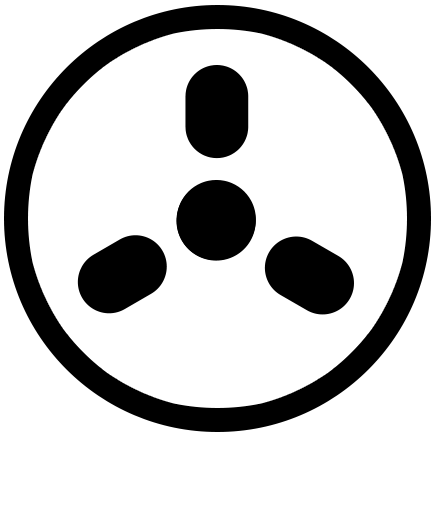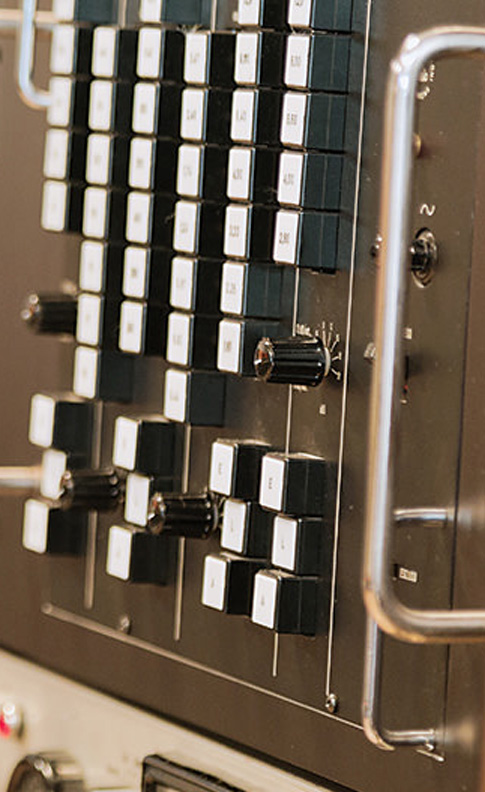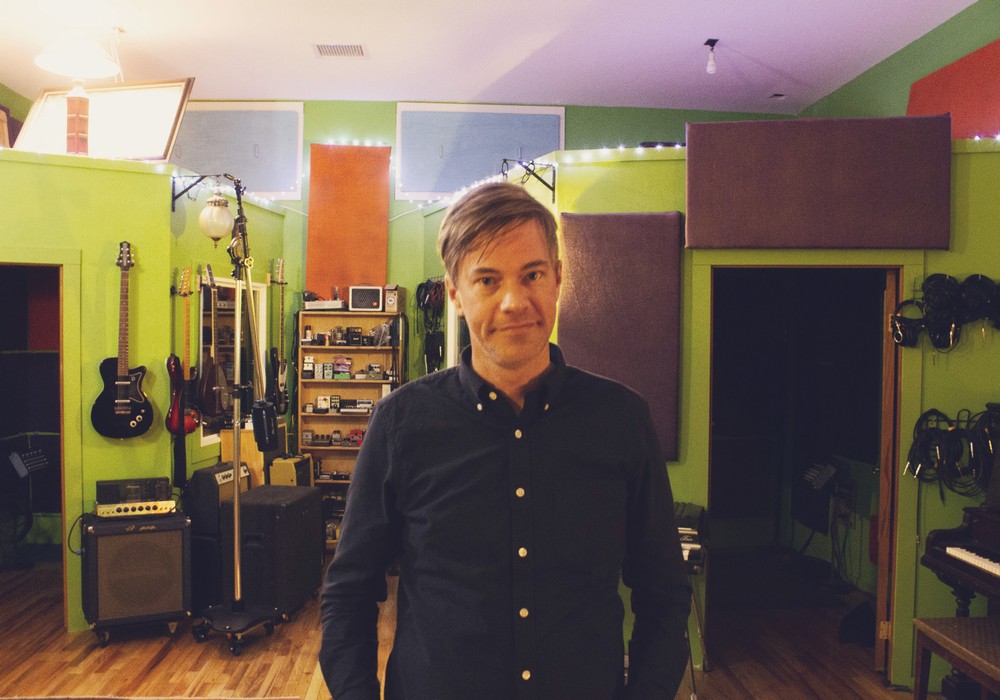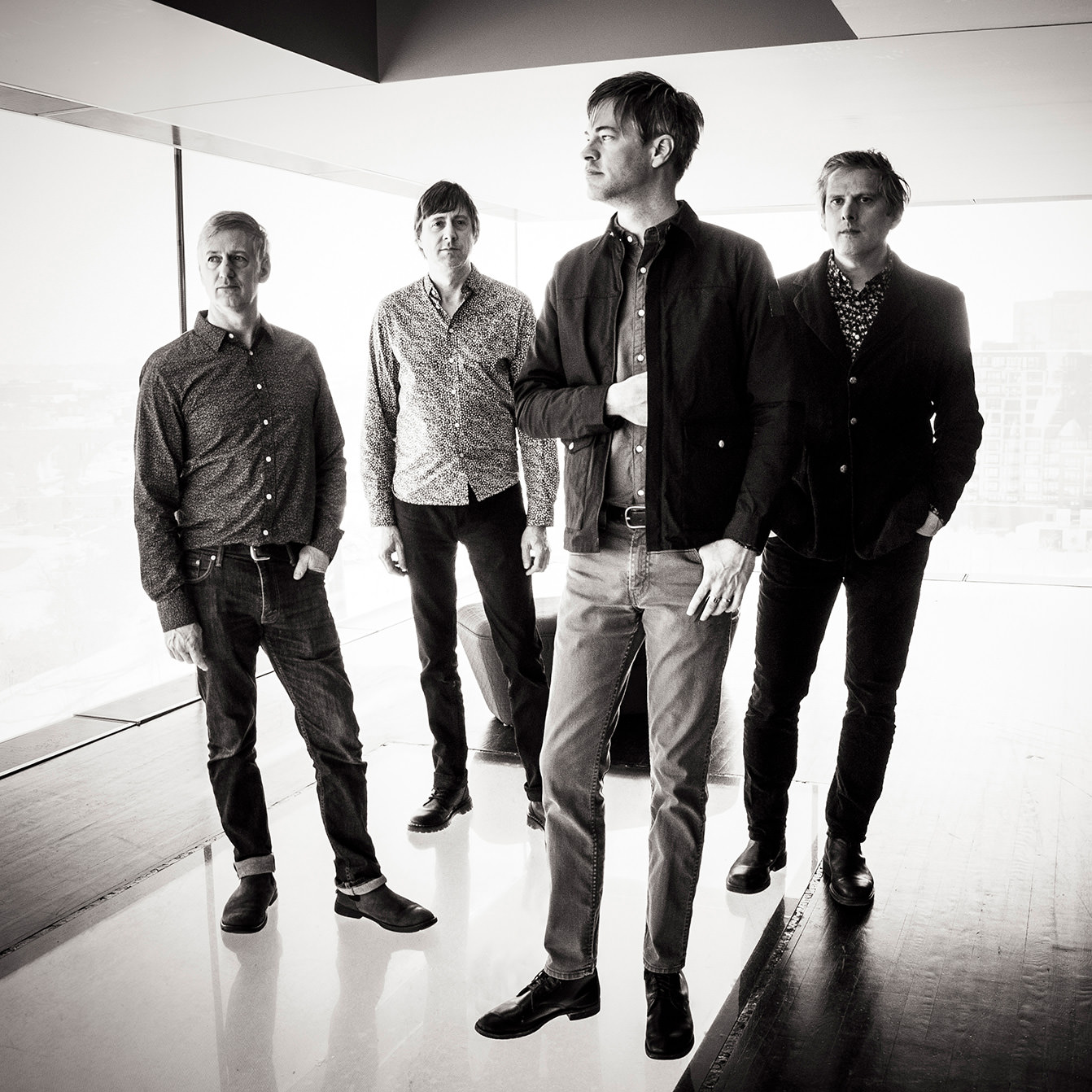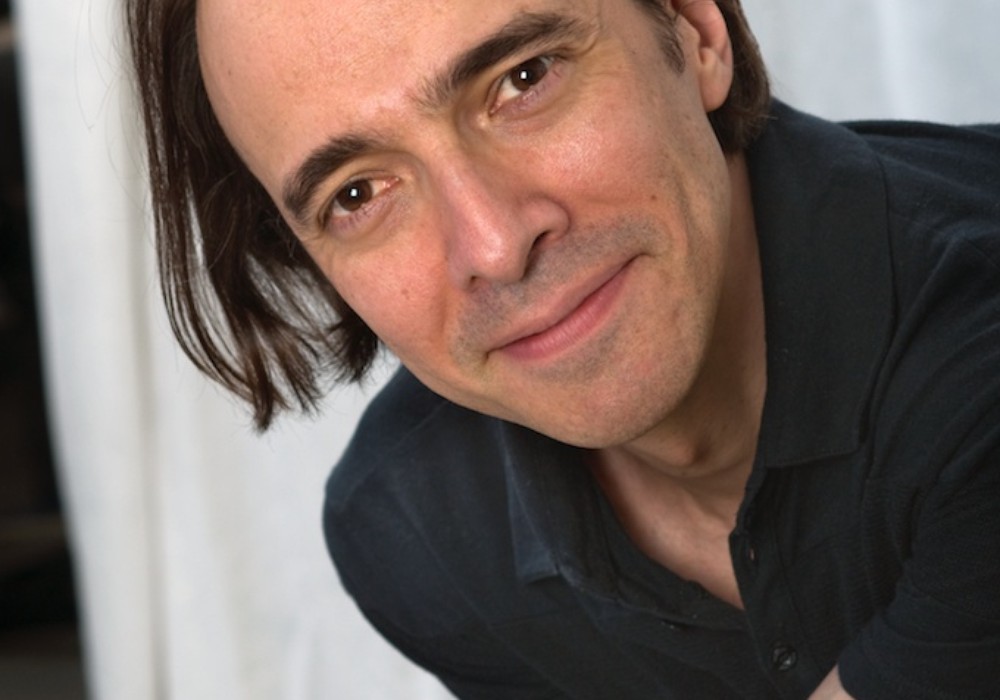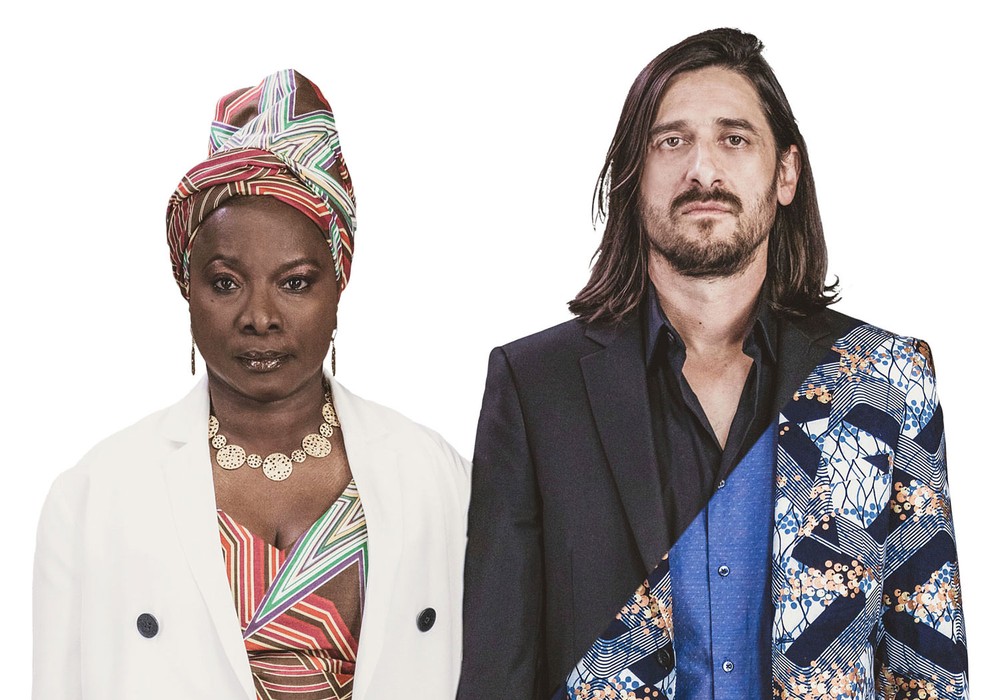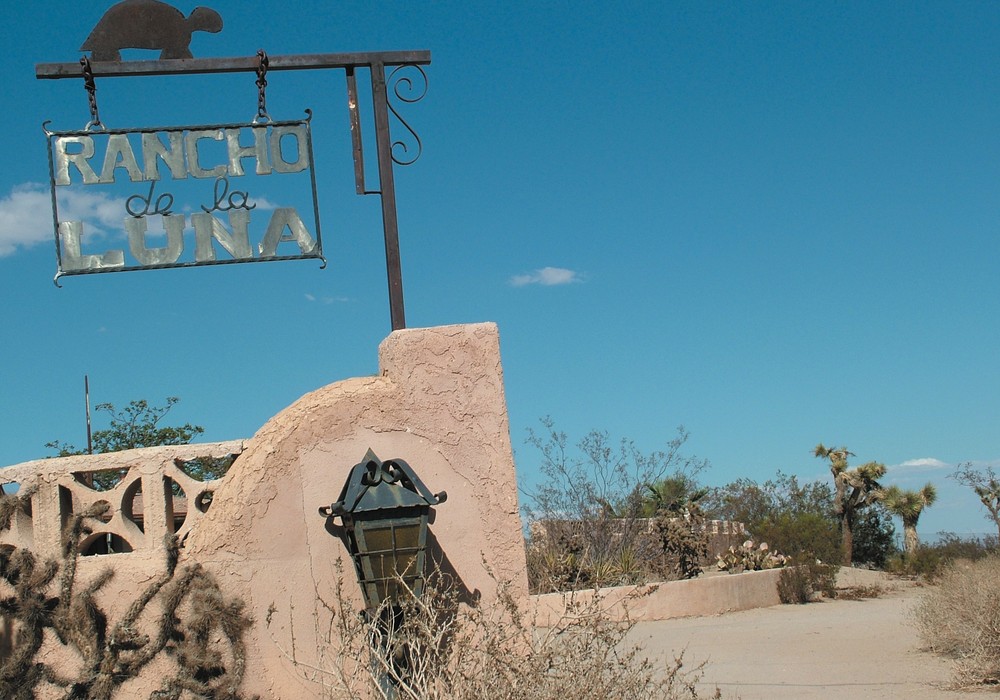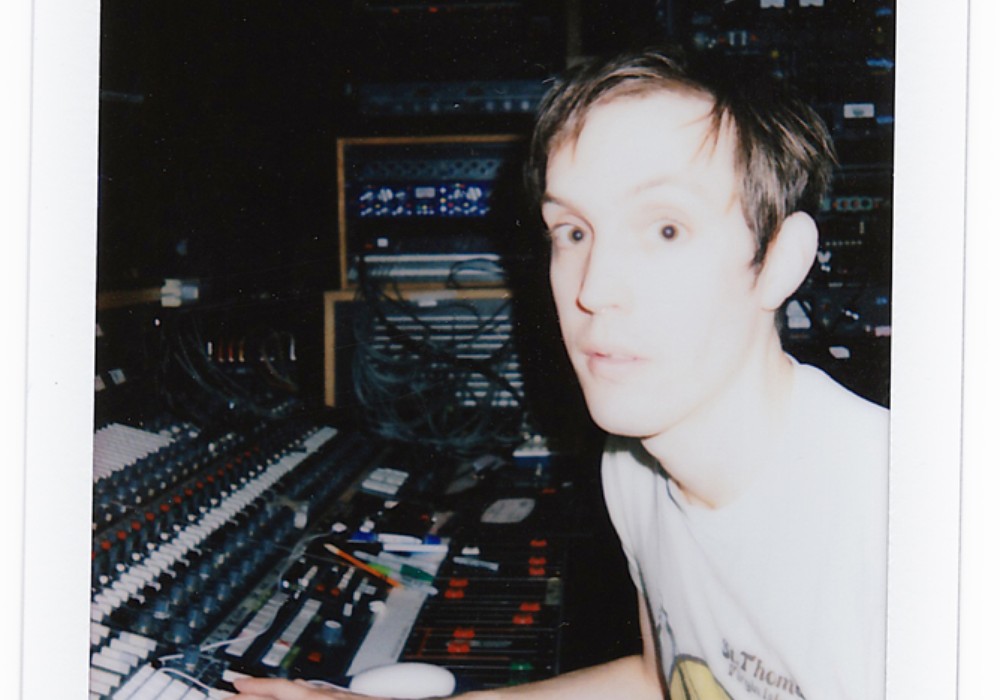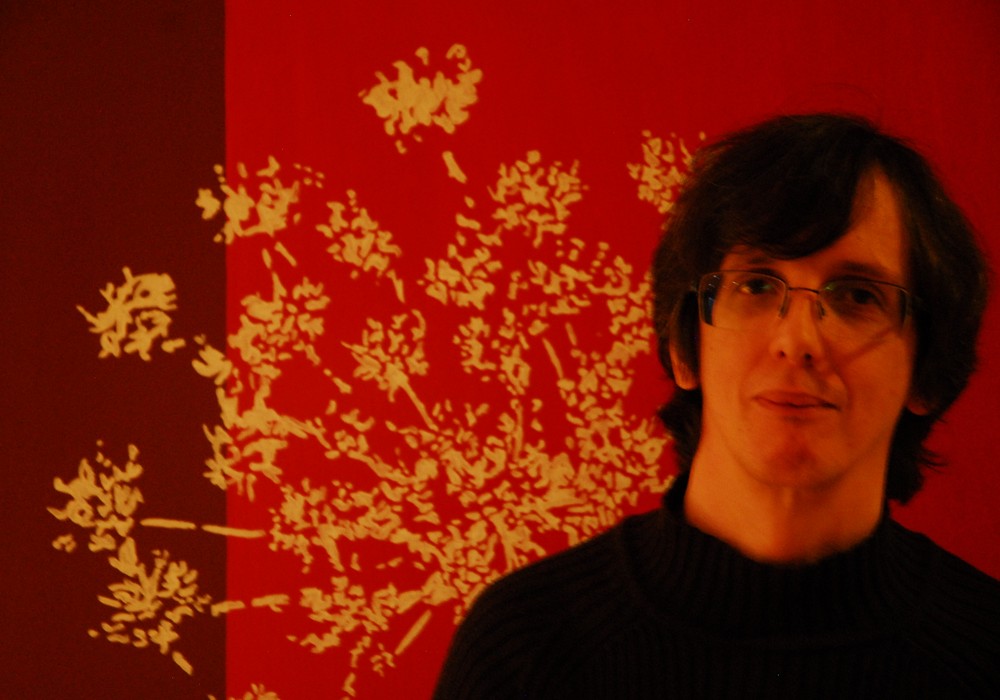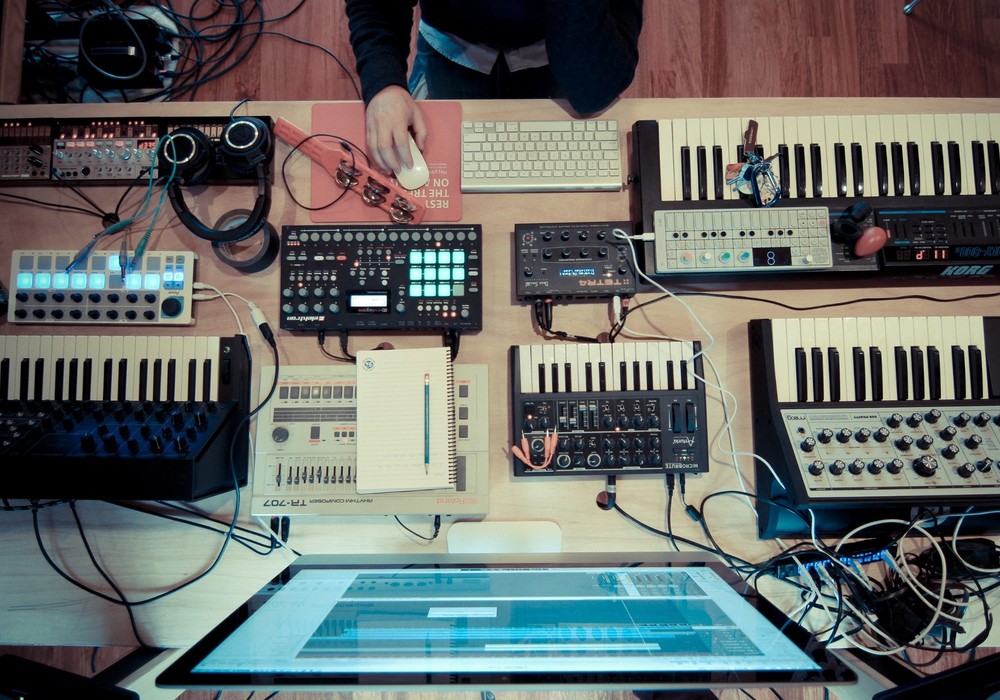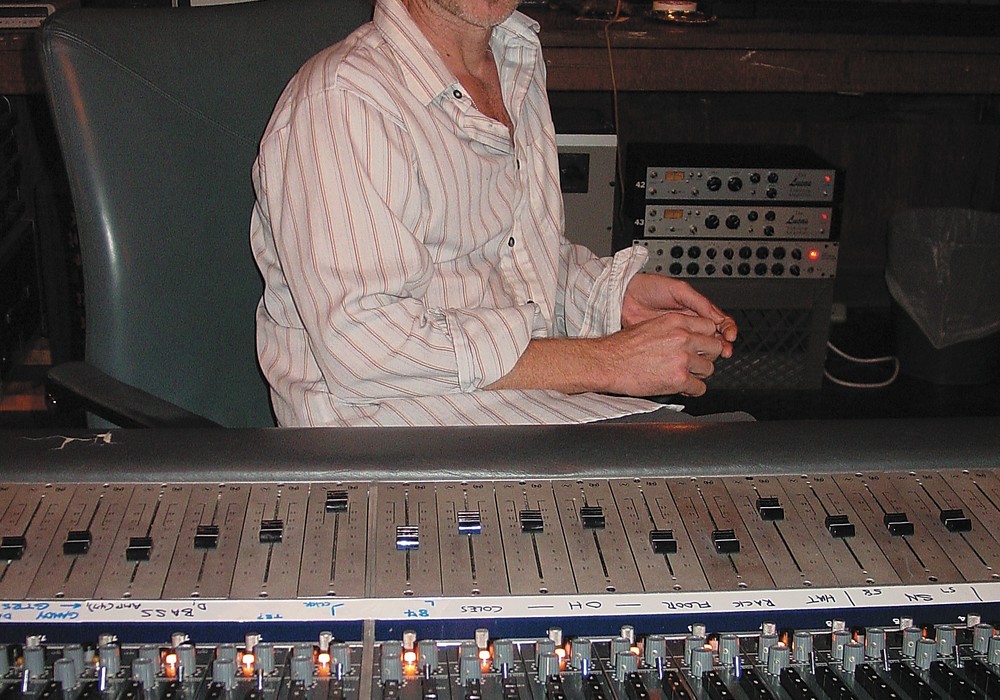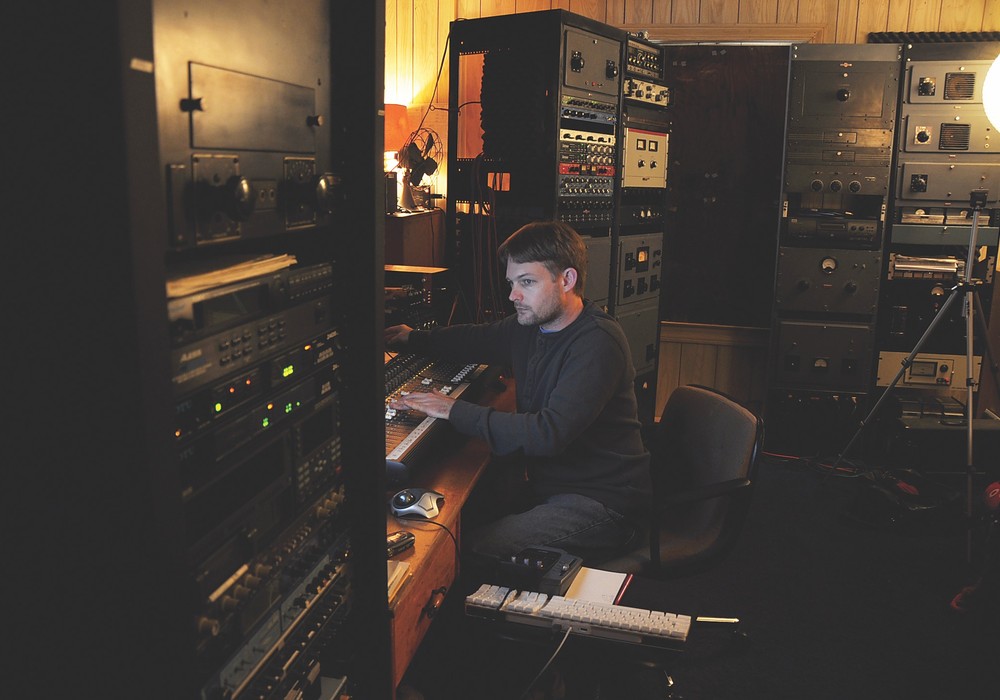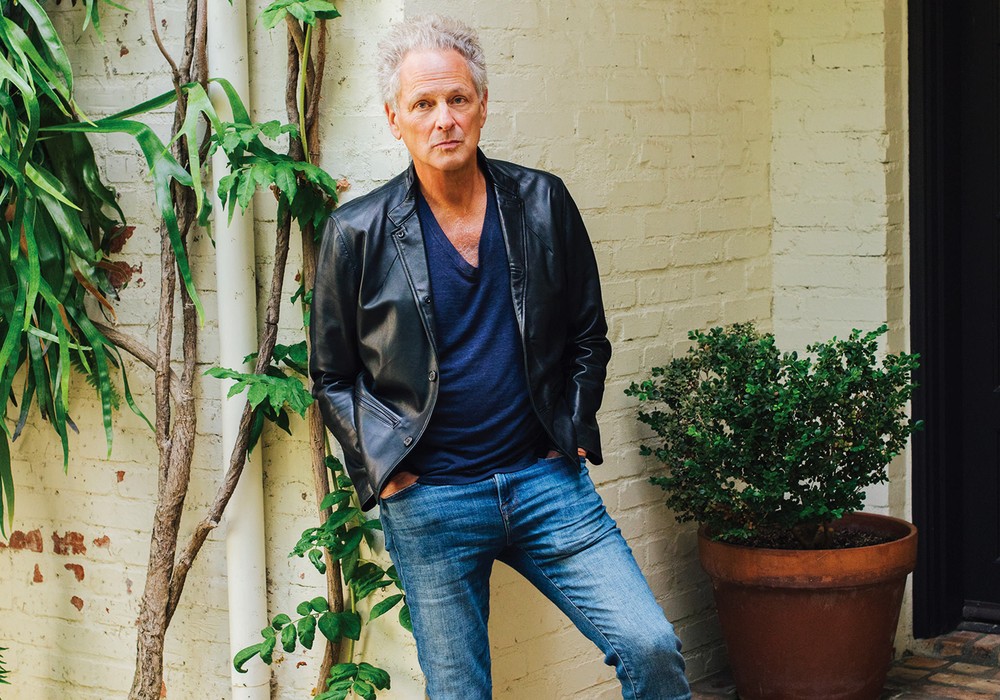The Ocean Blue have been making dreamy pop albums since the late ‘80s. Their new release, Kings and Queens / Knaves and Thieves, is a perfect example of a self-recorded album that works in the best ways. When they came to Portland to perform, main songwriter and singer David Schelzel dropped by my Jackpot! Recording to chat about the records they made in the past and how they work together now.
The Ocean Blue started playing in ‘85 or around then?
It's a little confusing. We met when we were in junior high, which would have been in the mid ‘80s. We made music together for a long time before we ever really played out. I think our first live shows were 1987. We got a manager that year and started playing out for the first time. Then, in 1988, it led right into shopping for record deals. We had made some recordings that caught a lot of peoples' attention.
Did you do them locally? Did you guys grow up in Hershey, Pennsylvania?
We did. Our drummer lived a little bit outside of Hershey, in a town called Reading. He had a pretty good (for the time) home studio. I think he had a Tascam 8-track machine. He was really into recording. I think a big reason he was interested in what we were doing was just to be able to make records, so it was good.
So, you shopped those around and Sire Records picked you up?
Yeah. I realize now how super fortunate and lucky we were. We had a lot of interest from major labels. I think there were six or seven labels that came to see us play at a club in Lancaster called The Chameleon, where we recently played, at a different venue, the other night for our record release show. But Sire was really where we wanted to be. So many of our favorite bands were on that label. [Label head] Seymour Stein himself came and saw us and was super excited about the record. He gave us an extraordinary record deal, a commitment of three records with options for more. We knew that if we were going to sign with Sire, we'd do at least three records and could develop as young artists. It was a great time.
You were sent to the UK and worked with John Porter?
Yeah.
I know you guys were inspired by The Smiths, whom he'd produced.
Oh yeah, huge Smiths fans. It was nuts. Seymour suggested we go to England to make the first record, because we were so influenced by English bands. We were super green.
How old were you at that point?
I was 20; The other guys were 19 and 18. We had never been in a major recording studio. I was, and remain, a pretty weak singer and guitar player. But John Porter was amazing. He's a sweetheart of a man. He loved our music and kind of nurtured us around. He was a perfect first producer to work with, very patient. We worked in Matrix Studios, which is the same studio where "How Soon is Now?" and a lot of great Smiths tracks were recorded. John would show us, "Oh yeah. Johnny [Marr] played through this amp. This is how we created the tremolo effect." It was pretty dreamy. I learned a lot about singing from John. Singing live is much different than if you're going to try to capture a vocal track. I learned even more about recording guitars, and the concept of double-tracking guitar.
Or just breaking different parts into pieces for different sections so you can really focus.
Exactly, like, "We're going to do this little noodley distorted thing through this Fender Bassman." I'm like, "That sounds terrible, John!" Then he'd fly it into the track and it would be a brilliant little thing.
Was he working on coaching you on vocals; like enunciation, phrasing, and meter?
Yeah, he did. I think it was mostly just trying to get me comfortable as a singer, to try and forget about what was happening and be able to be myself. Also working with the technology of punching in and comping. I had never done anything like that. For a weak singer like me – who can't just get up and sing a couple takes and it's done – it was really helpful to understand that process, and how to work with headphones and mic technique. He really coached me through all that. We weren't an easy gig for him, I don't think.
That first, self-titled record did fairly well back then.
Yeah, it did. The record sold well. We had a couple of hits on the college rock and modern rock charts. We were on MTV with that record.
That must have been a wild ride to start that fast.
It was, yeah. I realize now more than ever.
You were lucky to have a label where the founder and owner gets it, likes you, and is involved.
Right! And the cool thing about Sire is that it was like an indie label within a large major label. Sire was part of the Warner Bros. system. Even though Seymour and his team at Sire worked with us, we then had Warner Bros. on product management and promotion. The same people were promoting the New Order record or the new Morrissey record would be the ones to say, "Hey, check out the new Ocean Blue record!" That was really cool. We had a lot of support from the larger Warner Bros. people.
I suppose that journey was like another year of playing gigs and promoting and pushing after that first record came out?
Totally. We were on the road for about 18 months after the release of the record. Somebody asked me the other day if I have any regrets about those years. We could have done a lot more. We could have toured more overseas, but I was exhausted by the time it was all over and really wanted to get back into the studio.
Had you been writing while you were touring?
Yeah, I had. I'm kind of an introverted guy. I'm not made for the stage by any stretch. The reason I do what I do, and the reason I did it then, was I wanted to make records. That's how I related to music. I didn't see live bands in Hershey, Pennsylvania, growing up. The first show I saw was in Philadelphia after I graduated from high school. Making records was really what I wanted to do, so I wanted to get back to that.
I gotta ask, as a fellow Anglophile, did you get to do a John Peel session?
Sadly, no. That would have been pretty awesome. Like I said, there were a lot of opportunities that came our way that we just couldn't take advantage of in those years, and that was one that I wish we could have done.
So how did you approach the second record [Cerulean]?
It was 1990 when we were turning our attention to that. Most of our musical DNA is from the ‘80s, but our first record came out in ‘89. The Sire records are ‘89 through ‘94. That's really when kind of alternative music was turning the page to something much different. I really kind of retreated, and we worked on our second record. We took a much different approach. It was less about songs and more about the sonic landscape and the sound of that record. I had fallen in love with records like Roxy Music's Avalon, or Cocteau Twins' Victorialand. You put on those records, and it's a vibe from beginning to end.
It takes you somewhere else.
Exactly. There are songs, of course, but I really wanted a record that sounded like that.
Cerulean did fairly well, right?
It did. As a matter of fact, it probably has sold more than our first record. Our first record has three big sort of hits on it. But I would say that the record I hear that our fans mention more than any is our second one. I think part of the reason is what we were just talking about. I think there's a vibe about that whole record that connects with people.
Where did you record it?
We've kind of done records all over the world. The first record was studios in England. The second record was studios in New England. So, we worked at Long View Farm Studios in Western/Central Mass, and then a little bit in Concord, Massachusetts, and then we mixed it in New York at The Hit Factory with a guy named Jay Healy – a super great engineer. The recording engineer was a guy named Pat McCarthy – an amazing Irish engineer. It was fun to do that. Long View was a residential studio in a barn with a really old house.
Right. That's not operating anymore.
That's sad. It was a cool place. It felt like you were in a rural, isolated place if you dig that kind of thing. Mixing in New York was the complete opposite.
That probably led to more touring and the usual?
Yep. That cycle. We actually did a support tour with The Psychedelic Furs and we did our own dates. I think we did some dates with Tears for Fears. That and the next record were sort of the bus tours; the big kinds of tours.
Did you feel like you guys grew in the studio?
Oh, absolutely. I think from the first record, working with John Porter and Mark Opitz, the other producer on that record, we learned a ton. We produced our second record and worked with really good engineers. We put to use all the things we had learned making the first record. "How can we get that vocal to sound right?" "How can we arrange guitars?"
You're the primary songwriter?
Yep.
Did the band follow suit and figure out how to produce with you, or did you have to helm a lot of it yourself?
Yeah. For the first three records in particular, our drummer, Rob Minning, was an engineer. He and I really worked together, me more on the creative side and him more on the sonic and engineering side. The guys contributed on their instruments, as they would; Steve Lau on keyboard and sax and Bobby Mittan on bass guitar. But particularly for the second record, I was writing a lot of the parts. That was probably more dictated by me than the first record, which was a little bit more of a band thing.
One thing that I find cool about your music is the sense of space. Leaving room for the arrangements and leaving room for parts.
Yeah! Tracking is addition for me. I try everything. I want to bring it in and weigh it. But when it comes to actually mixing and figuring out the song, it's subtraction. I like space, and I like simple, well-placed notes. If you like reverb as much as me, you've gotta have space.
You've kept the band going for how many years now?
Over 30. It's kind of a miracle. Part of it is the band started as a group of friends in junior high who liked music. Music's kind of been the glue, but the friendship then has been the glue of the music. Bobby and I are the original members. We've known each other since we were super little. Oed Ronne's been in the band since the mid-‘90s. Steve, who I started the band with, left in the mid-'90s after we left Sire, and Oed joined, who lives here in Portland. Then Peter [Anderson], our drummer, has been in the band since ‘99. We're all friends.
And it's not a full-time endeavor at this point?
No, we all do different things. I'm a lawyer. Oed's a designer. Peter's an engineer. Bobby does other stuff. It's kind of always been that way, honestly. Even when we were on Warner Bros., I was going to school. I play in one side project too, which is more of a new thing, and that's kind of fun. When you have that space in your life you just have more opportunities.
How did you do the new record, Kings and Queens / Knaves and Thieves? Listening to it, I felt it might be something you'd recorded on your own, but I couldn't tell.
Absolutely we did.
Okay, I thought so.
Hopefully not in a bad way. We started trying to figure out how to make records in the modern era – without a major label budget, and without time – and we started to do things on our own. I wasn't quite sure whether we could make real records on our own. When I bought my first Roland machine...
Like those VS-88Os; those little digital multitracks?
Yeah. I bought one of those to write on, and I was like, "Wow, this is crystal clear!" Actually, I did have a tape machine. What's that Tascam tape machine where it's all one thing?
Oh, the 388? 8-track with the mixer?
Yeah. I had one of those. That was super fun. I just never felt like none of this could be a real record, right? But I started reading your magazine, hanging out with Peter, my drummer, and we just tried to make really good recordings, focusing on using the tools we had. Figuring out engineering stuff that I had never learned when people were doing it for me... It's been a real joy for me to realize that I have this experience of having worked with these amazing producers and engineers over the years, and learning about how records are made in the studio. Then bringing some of that knowledge to bear with tools that can approximate that. Pro Tools and the UAD plug-ins have been really helpful, because they're basically depictions of real gear that I've used before in the studio. We do things on our own now. I have a home studio, and Peter has a home studio. We track drums in a small space; everything is tracked in a small space. We don't get to use big spaces. We actually tried that on a few tracks and ended up not really liking it as much.
Going to another studio and tracking some drums?
Yeah. There are so many factors that go into making a good recording, and the most important thing is the performance. You could have a great space and great mics, but if the performance isn't inspired, I'll take the poorly-recorded great performance any day over that. Oftentimes, that's what it comes down to.
Sometimes it's a little too soon to track if you haven't worked it out. You'll have to work on the writing and then the drums get tighter and better.
I think the inverse is true for me and Pete. Sometimes I feel like the more I work on it, I produce the spirit out of it. There's something inspired about that moment where I wasn't thinking about it too hard. Sometimes we end up going with stuff like that and I think it makes it sound cool. It's like a beautiful accident, or it feels just very natural rather than too rehearsed.
How do you schedule yourselves to make sure you do get projects done?
Not very well. It took us six years to make this record. That's part of the problem. Part of it is all of us are really busy, but frankly, part of it is when you don't have a manager, and you don't have a record label on you, you have all the time in the world and it's hard to finish things. It's always hard to bring things in for a landing. I always want another bite at the apple. "Oh, that mix is great, but let's try one more. I can sing that better." I'm that kind of guy. That takes time. We've sort of had to set artificial deadlines for ourselves. But the other thing that's really true for me is that there's nothing that brings me more joy than music. Hardly an hour goes by where I'm not thinking about music, and hardly a day goes by where I don't throw something on a recording. That part is easy and fun, but then turning that stuff into a record that makes sense for your band? There's work then that gets involved and that's where time is important.
Did you guys do all the mixing for this album yourselves?
We did. This was mixed in the box. I'd get feedback from people like Butch Vig [Tape Op #11]. I'd run stuff by him and be like, "Do you think this sounds good enough? Do you think we should try to do this or that?" He'd give me thoughts. There are a few other people whose ears I trust. There are things on this record that I know could have sounded better, but there's something about it that I like.
You're using Pro Tools?
Yeah. Pro Tools, for better or for worse. When it allows us to use it – we've had some buggy experiences. We could not have made the records we made the past couple of years without Pro Tools. I really like working on it. Like I said, some of those UAD plug-ins have allowed us to make things sound a lot warmer and just better.
Are people working independently, sending files to compile in?
Yeah. I'm based in Minneapolis, and so is Peter our drummer. That's where we cut the basics. I throw the song in a session, and then I usually have Peter come over and we experiment with the drum part. The drums sometimes inspire me to finish a vocal or something. I like to get drums down early. Not necessarily the final drums, but kind of understand that rhythmic element, because so much of what I sing is built around rhythm. Once that starts to feel like something, then I'll send it off to Oed, and he'll noodle around on guitar and keyboard and come up with parts. Sometimes I have direction for him, and sometimes I don't. He'll send that back. I like to work with Bobby, the bass player, directly in real time. He'll come out and play bass either with Pete or with me in the studio. Then we slowly build it up. We use all of the above paths to get to where we're going.
What's the studio space like that you have? Is it in your home?
Yeah, it's in my home. The challenge is that I have a low ceiling, so I've had to make it completely dead. There's not a lot of nice live sound, but there's no bad live sound either. I throw amps in other rooms if I'm doing something loud. I sing right in front of the desk, and I don't have a mixing desk. It's all in the box. I have a variety of nearfields. I've got some gear, but some of the gear I have has really become too noisy to use, like the vintage stuff. It's kind of a shame. I usually just opt for a plug-in that gets me to the same place. The Roland DEP-5 was a huge part of my guitar sound, but those buggers are just kind of noisy now. I'm using the Lexicon plug-in, which I love, or the EMT plates to get a reverb sound I like. I couldn't be making records if I had to make them on Studer 24-track machines. It wouldn't fit in my house, and I couldn't afford it! Not all new technology sounds good, but you can wield those tools for good or evil. I think you can make amazing-sounding records, totally in the box, on Pro Tools. I'd love to make a record all on tape like I did in 1988, but it's just not practical, sadly.
What do you see for the future? Six more years for another record? I hope not!
Yeah, I hope not too. I want to keep making records. I'd like to get better at making records, like to grow in some of my engineering and production skills, but I don't lose sleep over that. For me, it's just like, "Am I enjoying this process? Am I getting joy? Am I learning from the people I'm working with, and are we doing good music?" It's all about that. 